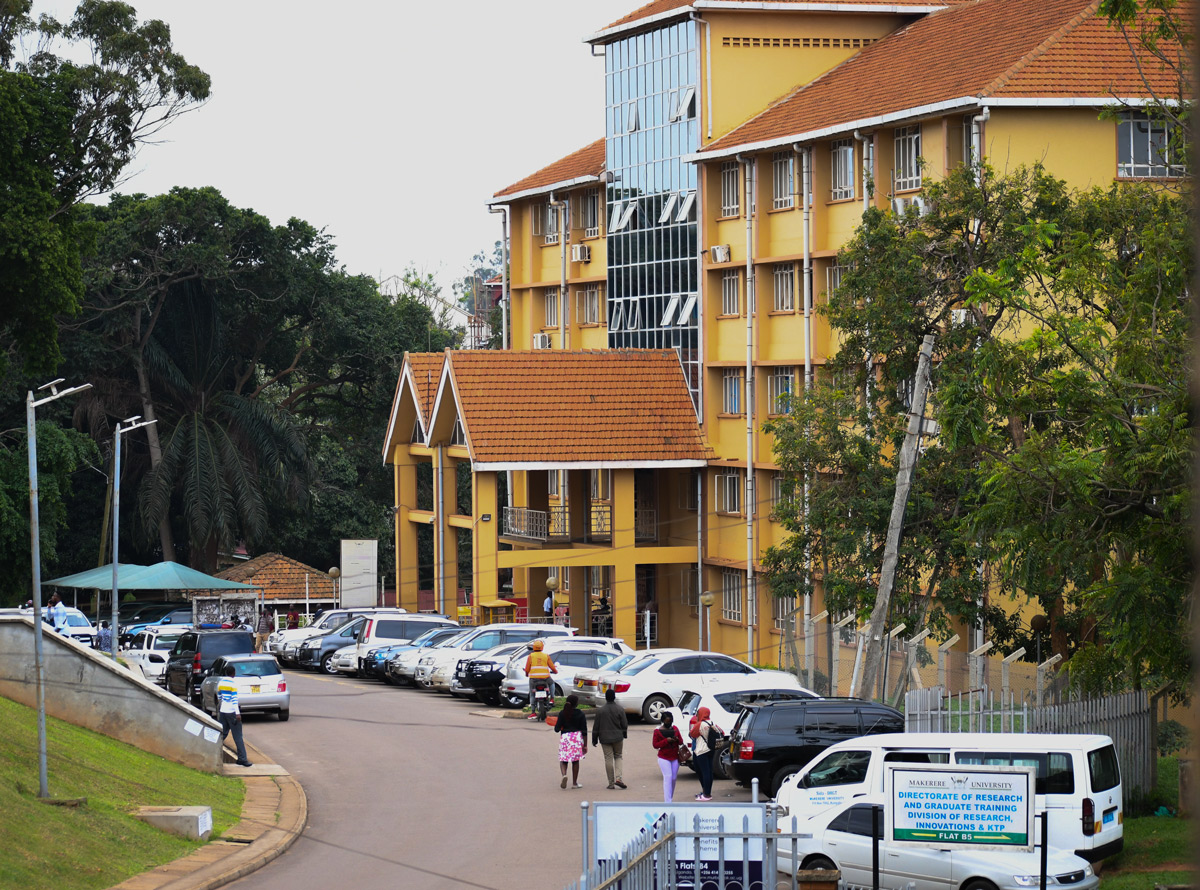Beginning of Semester One, 2022/2023 Academic year and and Orientation
Getting used to a new place can be pretty daunting, but that is what orientation is all about; getting to know your surroundings, meeting students and staff members. This makes you feel comfortable enough to hit the ground running when the semester starts. It is a great chance for you to familiarize yourself with the University.
First years (Freshers) will report on Saturday 15th October, 2022. Mini College Orientation for Freshers will be conducted concurrently with Lectures at the Colleges/Schools.
Semester One, 2022/2023 Academic year
Lectures for First years (Freshers) will start on Monday 17th October, 2022.
All Freshers must ensure that they enroll and register first with each of their respective Colleges/Schools/Departments/Halls/University Hospital.
Each first year student admitted to any Makerere University Programme MUST have a laptop Computer as one of the essential study tools for the programme.
Registration
For a candidate to qualify to be a bonafide student of the University, he/she must be registered. Registration is a mandatory requirement of the University which must be done within the first two (2) weeks from the beginning of the semester by every student. Privately sponsored students will pick their original admission letters after payment of 60% tuition and all functional fees from their respective colleges.
Registration programmes will be provided by the respective Colleges/Schools. Registration centres shall be based at the respective Colleges/Schools under the supervision of the College/School Registrars.
For registration purposes the originals of the following must be produced by each Fresher;
- Admission letter, ‘O’ Level Certificate/Pass Slip (UCE or equivalent)
- A’ Level Certificate/Pass Slip (UACE) or equivalent)
- Certificates/Transcripts of Degree/Diploma/Mature Age Entry Scheme Certificate (where applicable)
- Birth Certificate
- An Identity Card from the previous A’ Level School. The Diploma/Degree Holders must produce Identity Cards from their previous Colleges.
- Three photocopies of each of the ‘O’ and ‘A’ Level Results Slips/Certificates, and Transcripts /Certificates from the awarding Institutions in case of Diploma Holders.
- Seven most recent passport-size photographs. (Current Likeness)
- Copies of the Pay-in/Deposit Slip acknowledging Payment of the Registration fees, Examination fees, Library fees, Development fee, Research fee, Identity Card, Technology fees, National Council for Higher Education fees, UNSA Subscription fee and Tuition fees.
Ensure that you complete all the required enrollment/registration formalities within the prescribed time in order to avoid disappointments later.
Change of Programme/Subjects, 2022/2023 Academic year
(a) Change of Programme
Since selection for specific programmes was made according to each candidate’s performance and order of programme choices, taking into account the available subject combinations and time-table limitations, there is normally little need to change the programme or subjects. However, some places become vacant when some of the students admitted do not take up the offers. Such places are filled through the change of programme/subjects.
Change of programme will be online. Each student who may wish to change his/her programme/subject is required to pay an application fee of Shs.6,000/=
(b) Change of Subjects
Students in the College of Humanities and Social Sciences, Natural Sciences or the College of Education and External Studies may wish to change their subjects. Change of Subject will be done online on payment of Shs.6,000.
Students should be aware that changing one subject may result in a change of College. Before students apply to change their programmes, Colleges and Subjects, they are encouraged to seek advice on the cut-off point(s) for programmes, requirements for specific subjects and possible subject combinations.
Students are notified and warned that changing a programme or transferring to another subject or College without proper authority will lead to discontinuation from the University.
A student who has been permitted to change his/her programme or subject(s) is issued with a letter stating so, and on receipt of such a letter that student should complete the ACCEPTANCE FORM and return a copy to the Undergraduate Admissions and Records Office (Room 303), the former and the new College/School and ICT Office (Level 6, Room 615) Senate Building.
The change of programme/subjects will be done online from Monday 17th October, 2022 to Friday 28th October, 2022.
N.B: (i) It is advisable that only those students who meet the cut-off points for the desired programmes for 2022/2023 Academic year may apply.
(ii) Information, Academic Policies and Procedures can be accessed from the University website – www.policies.mak.ac.ug
(iii) Continuing privately sponsored students admitted for 2022/2023 Academic year on either Government or Private sponsorship will start in Year One and are advised to apply for cancellation of admission on earlier programmes if they are to take up the new offer this year.
Registration Requirements
For registration purposes, all first year students MUST produce their original documents. First year students shall pay the fees in the document attached below:
Alfred Masikye-Namoah
AG. ACADEMIC REGISTRAR
13th October, 2022


 General15 hours ago
General15 hours ago
 General15 hours ago
General15 hours ago
 Humanities & Social Sciences2 weeks ago
Humanities & Social Sciences2 weeks ago
 General1 week ago
General1 week ago
 Agriculture & Environment2 weeks ago
Agriculture & Environment2 weeks ago


